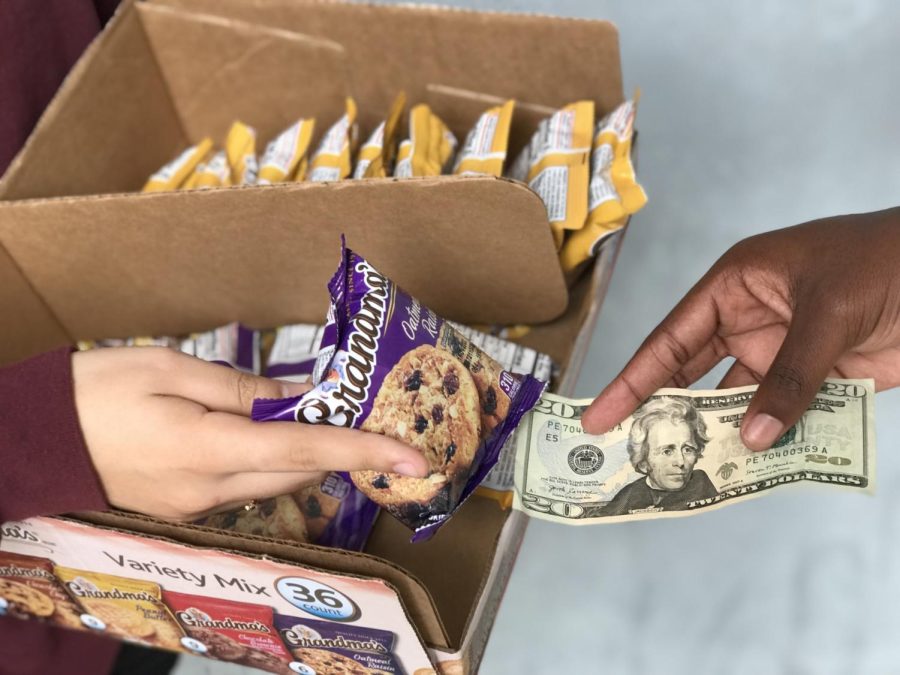That’s How the Cookie Crumbles
Black market sellers make it harder for students in clubs to sell their wares.
May 8, 2022
As an active student at SBHS seeking lots of service hours, freshman Angela Polanco agreed to sell five boxes of chips and cookies for $1.00 each in two weeks for one of her teachers. At first, sales were easy, but towards the end, she was having trouble.
“I started selling snacks for one of my teachers at the beginning of the year,” said Polanco.“It became a lot harder to get anyone to buy by the end.”
The culprit? Black market sales by other students at school.
School clubs, like Band, SGA, and Drama sell anything from chips to chocolate to donuts to even Poptarts to fund their activities. However, some people exploit this system, and will pose as members of a club, selling snacks for double the price and keeping the profit for themselves.
According to Polanco the competition makes it harder to sell all of their products, so it’s harder to get the service hours. This proves difficult when buyers have spent all of their money on independent sellers already.
“By the time I get to them they don’t have anything left to buy with,” said Polanco.
Working harder to earn hours isn’t the only cost. There’s an out-of-pocket cost too.
SBHS sophomore Abe Itch never bought his snacks at school, but the one time he did he regretted it.
“I bought Doritos from someone for $1.50. My friend told me I got scammed after the fact,” said Itch.
Ashley Lehman, activities director at South Broward knows about the problem. To combat the issue, weekly emails are sent out informing staff what is allowed to be sold and by whom. Anyone caught selling black market snacks has their items confiscated and is given IS. Ultimately the school is not allowed to confiscate the money they made, so it is returned to them at the end of the day. That doesn’t sit well with Itch.
“They should have their money taken from them also. It’s not fair they still get to keep the money they stole from other students,” said Itch.
On top of that, Lehman says these students will not be prohibited from selling snacks in exchange for service hours.
“We believe in letting students learn from their mistakes, if they do it multiple times we would not allow them to sell anymore,” said Lehman.
SBHS administration has to keep control over the amount of snacks that are sold on campus so that the clubs aren’t competing with each other.
But SBHS freshman Bianka Almazan thinks that students should be able to sell on campus.
She has sold more than 10 boxes of snacks for three different clubs this year in the hopes of collecting a lot of service hours.
An entrepreneur at heart, Almazan thinks some students have valid reasons to sell for their own gain.
“A lot of students, especially freshmen, have trouble finding jobs at their age. Selling snacks in school is a guaranteed way for them to make money,” said Almazan.
She understands that it could be a logistical problem for administration, but believes students should have a right to sell on campus if they follow certain rules.
“I think at least a percentage of their profit should go to the school, it’s like paying rent,” said Almazan.
In addition to the school taking a cut of the profit, Almazan thinks students should have to get approval from the majority of their teachers before being green lighted to sell their product.
“Students that want to sell would have motivation to get their grades up and behave in class,” said Almazan.
While understanding the problems that could arise with only allowing a select few to sell their own product, Almazan believes if students put in the work they should be allowed to make a profit as well.
“There are a number of people who would be responsible about selling for their own benefit,” said Almazan.



